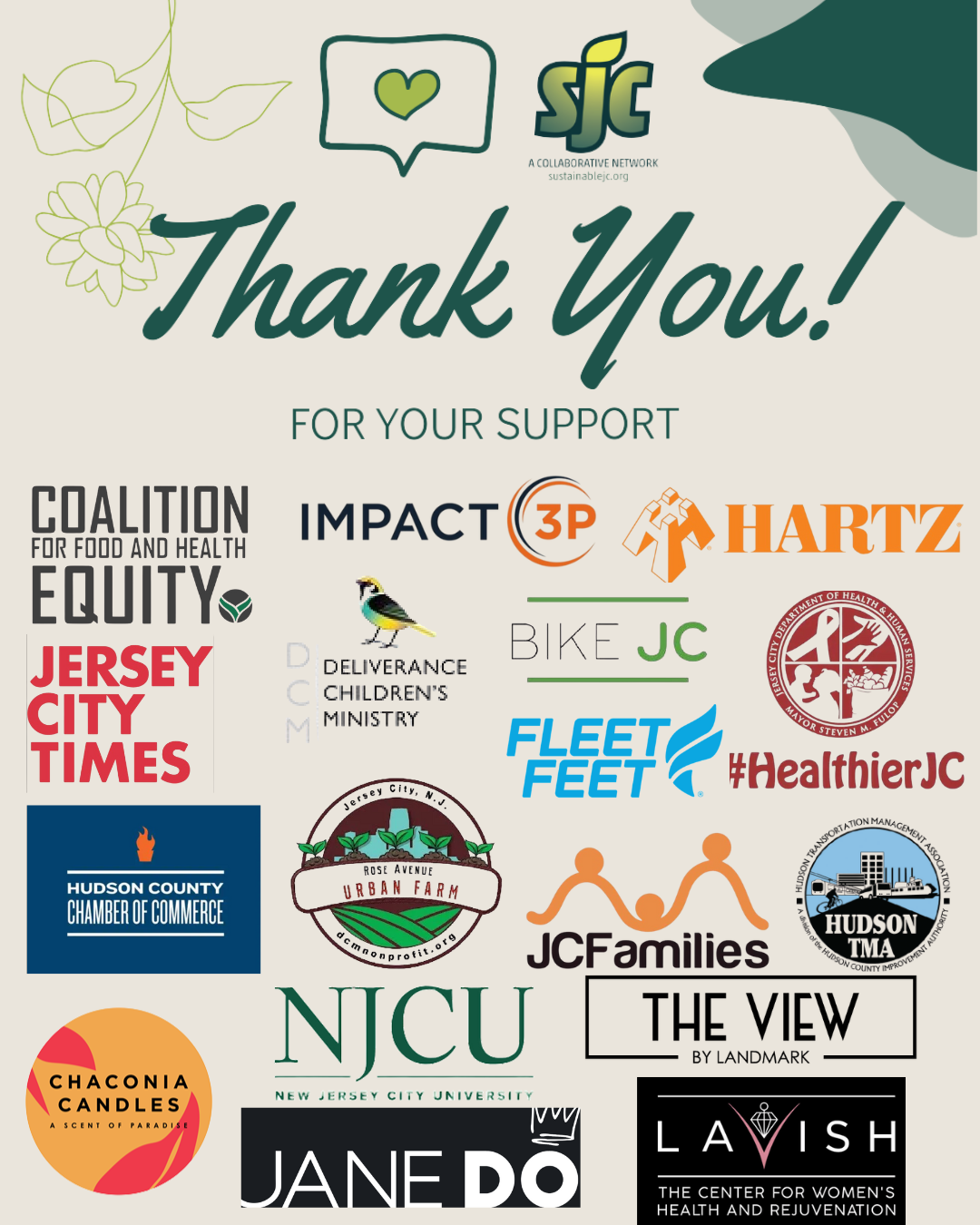Launch of the Hudson Climate Coalition (HCC), on Climate Action
/Launch of the Hudson Climate Coalition (HCC), on Climate Action
Submitted by Ashwani Vasishth, PhD, Founding Advisor, Sustainable Jersey City and Associate Professor of Sustainability at Ramapo College of New Jersey
Following up on the April 2019 Hudson County Climate Town Hall held in Jersey City City Hall, the five organizations that initiated the Town Hall, came together to officially launch the Hudson Climate Coalition (HCC). Convening at the Barrow Mansion on June 25th, 2019, Food & Water Watch, the Hudson County Sierra Club, Sustainable JC, and The Climate Mobilization (Hoboken Chapter) joined together, supported by the JC Environmental Commission to kick off the Coalition (HCC).
The June Kick-off Meeting began with Matt Smith, Food and Water Watch, introducing the Coalition, and the objectives of this particular “call to action.” At its heart, the concern we have is as follows: If it is true that we are squarely in the grip of a climate crisis, then why are we not, individually and collectively, acting urgently to change this “sorry state of affairs entire”? And, more specifically, how do we mobilize rapidly growing numbers of activists in the battle to mitigate and adapt to climate change?
Following introductions, the group broke into two clusters, one to discuss the Green New Deal, and the other to consider local action and activism. The session on the Green New Deal discussed how to promote such a massive economic stimulus & jobs program, designed to tackle our climate crisis, to our public officials. The discussion focused entirely on Hudson County’s congressional representatives. There was much interest in meeting with Congressman Albio Sires (8th District)—and, after that, with Congressman Donald Payne (10th District)—to lobby them to support the Green New Deal. It was agreed that these meetings would take place in the Fall—in part, so students from the Sunrise Movement would be around—and, between now and then, we would discuss strategy. Over 20 people said they wanted to participate in these efforts.
The cluster on local action and activism looked broadly at the case of urban forestry in Jersey City, and strategized ways to substantially increase the city’s tree canopy within a decade. The group discussed Tree Legislation being considered by Jersey City’s City Council, as well as ways in which citizens could meaningfully provide input into the process. The formation of a JC Shade Tree Commission was talked about, with a much-needed discussion about ways of ensuring that whatever oversight body might be created had enough power to push the city toward the ambitious but realistic and necessary goal of substantially increasing its tree canopy within the next decade.
This local action and activism break out group also focused on ways to work with local government and bringing forward a resolution to the Jersey City City Council to move the City toward carbon neutrality.
Halfway through the meeting, we switched things around again, breaking out into three clusters, with one focusing on organizing for Community Activism, one focused on stopping new fossil fuel infrastructure projects in Hudson County, and one on local and regional political action, which rolled up as follows.
During the session on fighting fossil fuel infrastructure, local residents and advocates discussed the two fossil fuel power plants currently proposed in Hudson County, one in North Bergen Township which would send electricity to NYC, and a second proposed by NJ Transit in Kearny to provide grid resiliency. These two proposed fracked-gas power plants would be among the largest carbon emitters in New Jersey. Furthermore, Hudson County, which would be most impacted by the two power plants, already has an “F” rating from the American Lung Association for ground-level ozone, a dangerous by-product of natural gas power plants that is known to exacerbate asthma and other respiratory illnesses. Learn more about natural gas power plant air pollution impacts here.
According to a 2018 report by the UN Intergovernmental Panel on Climate Change (IPCC), we may now have as few as 11 years to reach critical levels in stopping greenhouse gas emissions before the Earth reaches a dangerous temperature. A Rutgers study notes that sea level may rise almost three feet by 2100. New Jersey must work quickly to mitigate climate change, and that starts by enacting a moratorium on all new fossil fuel expansion projects.
Many participants in this session have already actively engaged in the campaign to stop the power plant proposed in North Bergen Township, many of them joining the recent “March For Our Lungs”, a student-led action that saw 500 local residents march to the site of the proposed power plant to call on Governor Murphy to stop it. Some had also attended local forums and lobbied their local elected officials to pass a resolution opposing the power plant in North Bergen Township. The main conclusion from the discussion is that we need to engage more people in these important issues with more petitioning, door to door canvassing, more educational events, more media and social media, and other grassroots organizing tactics.
The Hudson Climate Coalition now has an email address <hudsonclimatecoalition@gmail.com> and a Facebook and Instagram presence: @hudsonclimatecoalition.
Finally, the JC Office of Sustainability is preparing to release a Climate Action Plan (CAP), which will soon be rolled out for public input and comment. If you would like to engage with climate change actions within Jersey City, please send an email to sjc.climateactionplanning@gmail.com, with the Subject Line: Engaging the JC CAP Process.
Stay tuned for next steps. In the meanwhile, follow us on Facebook and Instagram. Or send HCC an email, to join our mailing list.




